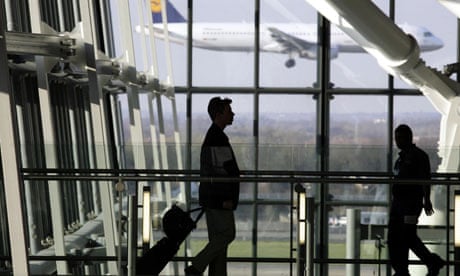Despite headline-grabbing soundbites about being the "greenest government ever", climate change has had a low profile during the coalition government's first two years in power. The phrase "we're all in this together" has been used repeatedly to justify a programme of unpopular public sector cuts. But with the environmental policies in George Osborne's latest austerity budget receiving short shrift from both the private and charity sectors, it is becoming increasingly clear that the same logic – of shared personal responsibility for a societal problem – doesn't apply to carbon emissions.
But why shouldn't the concept of a personalised 'budget' be applied to our environmental debt, as it is to our financial one?
Like carbon labelling, the concept of an equally distributed personal carbon budget (or allowance) is a big idea that has never taken off. In a UK government review in 2008, it was written off as a policy "ahead of its time". When individual politicians have dared to raise the idea of an individualised carbon budget – which people could spend, trade and owe just like money – the response from the political establishment and the media has not been positive. At best, personal carbon budgets are dismissed as impractical – at worst, they are caricatured as a totalitarian attempt to control behaviour.
But – perhaps surprisingly – research that has looked at how personal carbon budgets are perceived by the public has not always found such cynicism. In a review of the limited amount of data on public perceptions of carbon budgets, Dr Tina Fawcett found that personal carbon quotas – although by no means unconditionally endorsed – were often seen in a more positive light than other policy alternatives (eg carbon taxation).
And, whenever small-scale pilot schemes for trialling personal carbon budgets have been attempted, they have been met with a positive response from those who have participated in them. Typically, though, the participants in the pilot schemes have been enthusiasts, already convinced by the argument that there is a moral duty for individuals to use as little carbon as they can. There is (as yet) not much direct evidence of an appetite for personal carbon budgets among the general public.
But the degree of opposition towards the concept of personalised carbon budgets from the political establishment is perplexing. When the very same logic is applied at an international level – through systems like the EU Emissions Trading Scheme (ETS) for large corporations – it is viewed as a pro-choice, pro-business policy instrument. Businesses are free to make carbon savings in the most efficient way they see fit, and (in theory) the market promotes low-carbon practices. The strongest opposition to international carbon markets comes from campaigners who see market mechanisms as false solutions to climate change.
Yet the opposite is true for personal carbon allowances. The loudest voices against personal carbon budgets tend to be from the political right, typically claiming that carbon "rations" represent an unjustified attempt to control behaviour. But why, when the principle follows directly from market economics, should personal carbon allowances not be seen in the same way?
Perhaps it is because calculating and divvying up a carbon allowance for every individual would reveal the shocking disparity in the carbon footprints of the rich and the poor. The difference is starkest at an international scale, where individuals in developing countries use a fraction of the carbon of people in wealthy nations. But even within a well-off country like the UK, someone's income is a major factor in predicting the size of their carbon footprint. More disposable income tends to lead to more flights abroad, a larger house and a car with a bigger engine. This means that a system of equally divided personal carbon allowances would be a radically progressive policy in terms of wealth re-distribution. The rich would literally have to buy carbon from less wealthy people (with less environmentally damaging lifestyles), or change their behaviour in a dramatic way.
Perhaps then, the main obstacle to a system of personal carbon trading is not the practical difficulties in measuring and calculating carbon budgets, nor the supposedly unreasonable idea of constraining and capping people's carbon-related behaviour. The real reason that a personal carbon allowance is seen as ahead of its time is that a truly equal division of carbon would reveal the carbon gap between the rich and the poor – something that the coalition government seems in no great hurry to address.
Adam Corner is a research associate at Cardiff University. His interests include the psychology of communicating climate change
This content is brought to you by Guardian Professional. Become a GSB member to get more stories like this direct to your inbox

Comments (…)
Sign in or create your Guardian account to join the discussion